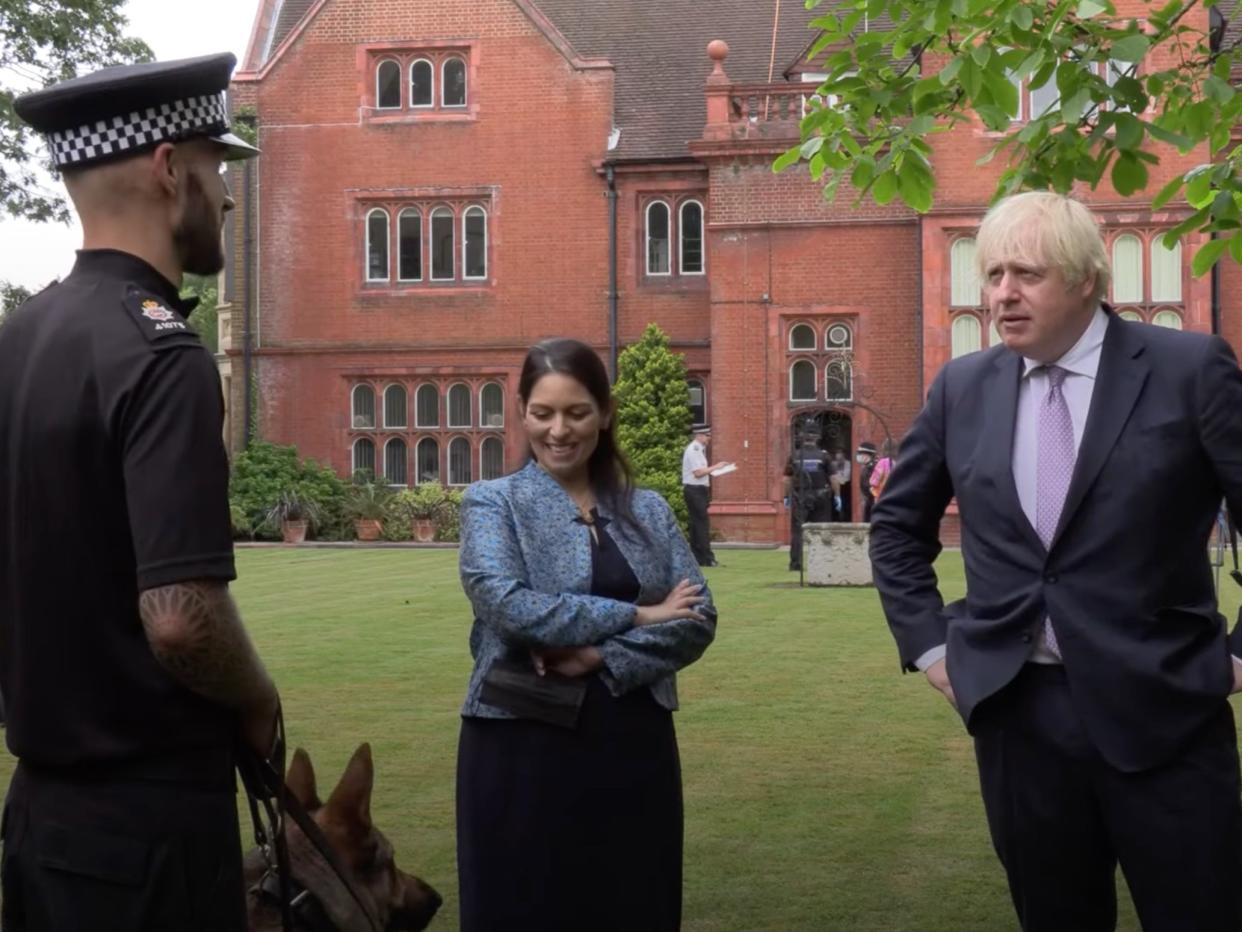Boris Johnson’s crime slogans might win votes, but taxpayers will foot the bill if offenders end up on the streets

Six houses in southern England have for more than four decades provided a home for thousands of the most vulnerable people. Vulnerable, and dangerous. Because the houses run by a charity – Change Grow Live – have offered accommodation over the years for around 2,000 former prisoners who have committed serious offences.
But on Friday, as my colleague Jackie Long reported on Wednesday’s Channel 4 News, those houses will close their doors. The charity blames funding cuts. They’ve been bankrolled by West Sussex County Council since 2003, but with central government grants cut by 38 per cent in real terms over the decade to 2019, the money has run out. For four months, Change Grow Live has funded the housing project itself. But now it can do so no longer.
By an unfortunate quirk of timing, this comes in the same week that the government announced its blitz on crime. On Wednesday, the Ministry of Justice also announced that criminals would be guaranteed accommodation when they left prison as part of a £20m plan to reduce reoffending.
It sounds like a good idea, but according to Change Grow Live, it’s a “quick fix”. The charity warns that without a long-term, well-funded solution, ex-offenders are more likely to end up on the streets – where they could pose a threat to the public – or back in jail, where they’ll end up costing the taxpayer more.
“Beating Crime” risks being little more than a slogan if the criminal justice system in its entirety is under-resourced. This journalist-turned-prime minister is, like a hack on a deadline, a true pro at coming up with an attention-grabbing phrase. His critics fear it’s the details that sometimes elude him.
Boris Johnson certainly captured the headlines with his pledge to make ex-offenders join “fluorescent-jacketed chain gangs”, or slap GPS ankle tags on burglars.
But it’s hard to treat either policy as ground-breaking when both have actually been announced or trialled years ago. Labour tried the hi-vis jackets in 2008 and abandoned it after the offenders were abused by members of the public. The expansion of electronic tagging was first announced in 2011, and was originally supposed to have been rolled out across England and Wales in 2019. This week’s announcement was scaled back to just 19 police force areas.
And what’s underpinning these eye-catching pronouncements? Across the criminal justice system – police, courts, prisons and probation – years of spending constraints are now beginning to be reversed. But those at the sharp end say budget cuts of such magnitude should never have been made.
There has been a tacit – though not public – admission that cutting 20,000 police officers since 2010 was a mistake. The prime minister says the government is now half way to restoring those numbers, but when I asked the policing minister Kit Malthouse if the original cuts had been an error, he cited financial pressures at the time. It’s telling that despite the huge burden of pandemic debt, the government now sees fit to make the investment.
On prisons and probation, too, ministers insist they’re starting to boost expenditure, though the details are murky. The Ministry of Justice saw spending fall by 25 per cent between 2010 and 2020. Prison and probation minister Alex Chalk was unable to tell me on Channel 4 News on Wednesday whether the promise of an extra 2,500 probation officers restored the numbers cut since the Conservatives came to power, nor how much lower probation funding was now than then. He was, he said, “99 per cent sure” it was higher.
And while Johnson waxed lyrical on “chain gangs”, I didn’t hear him explain how he planned to clear the record crown court backlog of sixty thousand cases – a relic not just of lockdown constraints but budgetary ones too, leading barristers say. Nearly two decades ago, when I was still a newspaper hack myself, I remember the then Tory shadow home secretary Oliver Letwin setting out a big new idea on law and order, and a startling break from the party’s “prison works” policies of the Thatcher era. He wanted to end what he called the “conveyor belt” of criminality.
It didn’t win the Conservatives power. And perhaps that’s the point. No doubt the hi-vis jackets and the ankle tags will be popular. But will they stop people re-offending?
And if that doesn’t give you pause for thought, consider this: a year in one of the houses run by Change Grow Live costs £18,000. A year in prison costs £44,000. Put like that, the failure so far to address long-term under-investment in the criminal justice system could end up becoming a greater burden to the taxpayer in the long run.
Cathy Newman presents ‘Channel 4 News’, weekdays, at 7pm
Read More

 Yahoo News
Yahoo News 
